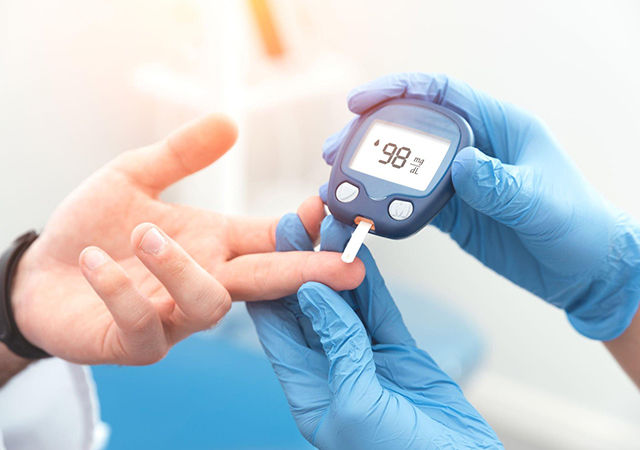
Diabetes is a chronic medical condition that occurs when the body cannot effectively regulate blood sugar (glucose) levels. This can happen either because the pancreas doesn’t produce enough insulin (Type 1 diabetes) or because the body’s cells don’t respond properly to insulin (Type 2 diabetes). Here are key aspects of diabetes:
Types of Diabetes
⦁ Type 1 Diabetes:
- Cause: Autoimmune reaction that destroys insulin-producing cells in the pancreas.
- Onset: Often occurs in childhood or adolescence.
- Treatment: Requires insulin therapy for life.
⦁ Type 2 Diabetes:
- Cause: Insulin resistance, where cells do not respond effectively to insulin.
- Onset: Typically occurs in adulthood but can develop at any age.
- Treatment: Managed through lifestyle changes, oral medications, and, in some cases, insulin.
⦁ Gestational Diabetes:
- Occurrence: Develops during pregnancy.
- Risk: Increases the risk of Type 2 diabetes later in life.
- Management: Controlled through diet, exercise, and sometimes medication.
Risk Factors
⦁ Genetics:
- Family history of diabetes increases the risk.
⦁ Obesity:
- Excess body weight, particularly around the abdomen, is a significant risk factor.
⦁ Age:
- The risk increases with age, especially after 45.
⦁ Physical Inactivity:
- Lack of regular physical activity is associated with an increased risk.
⦁ Ethnicity:
- Certain ethnic groups, including African Americans, Hispanics, and Native Americans, have a higher risk.
⦁ Gestational Diabetes:
- Having had gestational diabetes during pregnancy increases the risk.
Symptoms
⦁ Frequent Urination:
- Increased need to urinate, especially at night.
⦁ Excessive Thirst:
- Feeling very thirsty and drinking more fluids than usual.
⦁ Unexplained Weight Loss:
- Losing weight without trying, despite increased appetite.
⦁ Fatigue:
- Feeling tired and lacking energy.
⦁ Blurred Vision:
- Changes in vision may occur.
⦁ Slow Healing:
- Cuts and wounds take longer to heal.
Diagnosis
⦁ Fasting Blood Sugar Test:
- Measures blood sugar after an overnight fast.
⦁ A1C Test:
- Reflects average blood sugar levels over the past 2-3 months.
⦁ Oral Glucose Tolerance Test (OGTT):
- Measures blood sugar levels before and after drinking a sugary solution.
Management
⦁ Lifestyle Modifications:
- Healthy eating, regular exercise, and weight management are crucial.
⦁ Medications:
- Insulin or oral medications may be prescribed to manage blood sugar levels.
⦁ Continuous Glucose Monitoring (CGM):
- Some individuals use CGM devices for real-time glucose monitoring.
⦁ Regular Monitoring:
- Regular blood sugar monitoring to track levels and make necessary adjustments.
⦁ Education and Support:
- Diabetes education and support are essential for effective self-management.
Complications
⦁ Cardiovascular Issues:
- Increased risk of heart disease and stroke.
⦁ Kidney Damage:
- Diabetes is a leading cause of kidney failure.
⦁ Eye Problems:
- Increased risk of retinopathy and vision problems.
⦁ Nerve Damage:
- Neuropathy leading to numbness and tingling in the extremities.
⦁ Foot Complications:
- Increased risk of infections and foot ulcers.
Prevention
⦁ Healthy Lifestyle:
- Regular physical activity and a balanced diet can help prevent Type 2 diabetes.
- Maintaining a healthy weight reduces the risk.
- Regular health check-ups and monitoring of blood sugar levels.
Diabetes management involves a multidisciplinary approach, including medical care, lifestyle modifications, and ongoing support. Early diagnosis and effective management are crucial for preventing complications and maintaining overall health. Individuals with diabetes should work closely with healthcare professionals to develop and implement a personalized treatment plan.
